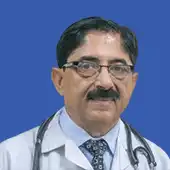Blackheads are acne that appear as small, dark spots on the skin, usually on the face, neck, or back. They are caused by the buildup of oil, dead skin cells, and bacteria in the hair follicles. Blackheads can be treated with over-the-counter topical medications, such as benzoyl peroxide or salicylic acid, or prescription medications, such as retinoids or antibiotics. Professional treatments like chemical peels or microdermabrasion may be recommended in some cases. Prevention involves good skincare habits, including regular cleansing and exfoliation.
| Causes | Clogged hair follicles, excess oil production, bacteria buildup |
|---|---|
| Remedies | Benzoyl peroxide, salicylic acid, retinoids |
| Preventive Options | Gentle exfoliation, oil-free products, frequent cleansing |
| Treatment Options | Extraction, chemical peels, laser therapy |
| Specialist | Dermatologist |
A blackhead is an acne lesion which causes hair follicle becomes clogged with excess oil and dead skin cells. The oxidation of the oil and skin cells within the hair follicle causes the dark appearance of a blackhead. Blackheads are most commonly found on the face, particularly in the T-zone area, but can also occur on the back, chest, and other body areas. They are usually characterized by small, dark bumps on the skin, which can be raised or flat. Treatment for blackheads depends on the severity of the condition. It may involve using over-the-counter or prescription medications, adopting a regular skincare routine, and making lifestyle changes such as avoiding oil-based products and maintaining a healthy diet.
Blackheads are a type of acne that appear as small, black bumps on the skin. Here are some other symptoms that may be associated with blackheads are given in the following.
Blackheads are a type of acne that occur when hair follicles become clogged with oil and dead skin cells. Here are some common types of blackheads are given in the following
| Types of Blackheads | Description |
| Open comedones | Characterized by small, dark spots that appear on the surface of the skin |
| Closed comedones | Covered by a thin layer of skin that makes them appear as small, flesh-colored bumps |
| Whiteheads | It appears as small, white or flesh-colored bumps on the skin, caused by the same clogged pores as blackheads |
| Inflammatory acne | Severe form of acne that occurs when the hair follicles become inflamed, causing red, painful bumps on the skin |
| Cystic acne | severe form of acne that occurs when the hair follicles become infected |
Blackheads are a common skin condition that can occur due to a variety of factors such as excess oil production, clogged pores, and hormonal changes. However, in some cases, blackheads can also be a symptom or first sign of an underlying medical condition. Here are some medical conditions that can cause blackheads.
Acne vulgaris is a common skin condition that can cause the formation of blackheads, whiteheads, and pimples. It occurs due to the overproduction of oil by the skin's sebaceous glands and the clogging of hair follicles.
PCOS is a hormonal disorder that can cause a range of symptoms including irregular periods, weight gain, and acne. Women with PCOS may be more prone to developing blackheads due to the hormonal imbalances that occur with this condition.
Cushing's syndrome is a rare disorder that occurs when the body produces too much cortisol, a hormone that regulates the body's stress response. Blackheads can sometimes be a symptom of Cushing's syndrome, along with other skin changes such as acne and purple stretch marks.
Addison's disease is a disorder that occurs when the adrenal glands do not produce enough hormones, including cortisol. Blackheads can sometimes occur in people with Addison's disease, along with other skin changes such as hyperpigmentation.
Hyperandrogenism is a condition in which there are high levels of androgens, male hormones that are also present in women. This condition can cause acne and blackheads, as well as other symptoms such as hair loss and irregular periods.
Dermatomyositis is arare inflammatory disease that affects the skin and muscles. Blackheads can sometimes be a symptom of this condition, along with other skin changes such as a purple or red rash.
Blackheads are a type of acne, and their diagnosis is usually based on a visual examination by a healthcare professional or dermatologist. The diagnostic process may involve the following.
Blackheads are a common skin condition that can be treated with various medications. Here are five drugs commonly used in the treatment of blackheads
Topical retinoids, such as tretinoin, adapalene, and tazarotene, are derivatives of vitamin A that can be applied directly to the skin. They work by increasing cell turnover and preventing the clogging of hair follicles, which can help to reduce the formation of blackheads.
Salicylic acid is a type of beta-hydroxy acid that can help to exfoliate the skin and unclog pores. It is available in various strengths and can be used in a variety of products, including cleansers, toners, and spot treatments.
Benzoyl peroxide is an antimicrobial agent that can kill the bacteria that contribute to the formation of blackheads and other types of acne. It is available in various strengths and can be used in a variety of products, including cleansers, toners, and spot treatments.
Azelaic acid is a dicarboxylic acid that can help to reduce inflammation and kill bacteria. It is available in various strengths and can be used in a variety of products, including gels and creams.
Oral or topical antibiotics, such as doxycycline or clindamycin, can be prescribed for more severe cases of blackheads. They work by killing the bacteria that contribute to the formation of blackheads and other types of acne.
Blackhead extraction is a cosmetic procedure that involves removing blackheads manually using a small tool. This procedure is usually done in a dermatologist's office and can be done safely and effectively. The dermatologist will use a small tool to gently press down on the blackhead and remove it from the pore. This method can be painful and may cause scarring if not done properly, so it is important to have a qualified professional perform the extraction.
A chemical peel is a procedure that involves applying a chemical solution to the skin to remove dead skin cells and unclog pores. This procedure can be effective for treating blackheads and other types of acne, but it can also cause redness, peeling, and irritation.
Keeping the skin clean is the first step in preventing and treating blackheads. Washing the face twice a day with a gentle cleanser can help to remove excess oil, dirt, and dead skin cells from the skin.
Exfoliating the skin can help to remove dead skin cells and unclog pores. This can be done with a gentle scrub or with chemical exfoliants like alpha-hydroxy acids (AHAs) or beta-hydroxy acids (BHAs).
Face masks can be effective for treating blackheads by helping to unclog pores and remove excess oil from the skin. Clay masks, charcoal masks, and other types of masks can be used to help treat blackheads.
Some natural remedies like tea tree oil, honey, and apple cider vinegar can be effective for treating blackheads. These remedies have antibacterial and anti-inflammatory properties that can help to kill bacteria and reduce inflammation.
Blackheads can be prevented by taking good care of the skin and making lifestyle changes. Here are some ways to prevent blackheads.
Having a proper skincare routine is the first step in preventing blackheads. Cleansing the face twice a day with a gentle cleanser and using a toner and moisturizer can help to keep the skin clean and hydrated. Exfoliating the skin once or twice a week can also help to remove dead skin cells and unclog pores.
Comedogenic products can clog the pores and cause blackheads. It is important to use non-comedogenic products that do not clog the pores. Look for products that are labeled "non-comedogenic" or "oil-free" to prevent blackheads.
Excessive sun exposure can cause the skin to produce more oil, which can lead to blackheads. It is important to use sunscreen daily to protect the skin from the harmful effects of the sun. Look for a sunscreen that is non-comedogenic and has a minimum SPF of 30.
Eating a healthy diet that is rich in fruits, vegetables, and lean protein can help to prevent blackheads. Avoiding sugary and fatty foods can also help to prevent blackheads.
Regular exercise can help to improve blood circulation and reduce stress, which can help to prevent blackheads. Exercise also helps to improve overall health, which can lead to healthier skin.
Touching the face with dirty hands can transfer bacteria to the skin and cause blackheads. It is important to avoid touching the face and to wash the hands regularly to prevent blackheads.
Blackheads are a common skin concern and can often be treated at home. However, consider considering seeing a doctor. These are given in the following.
If you are unsure whether your blackheads require medical attention, it's always a good idea to consult a doctor or dermatologist for guidance. They can diagnose properly and recommend appropriate treatments to help you achieve clear and healthy skin.
If you have blackhead and are concerned about your health, it is important to seek immediate medical attention from a qualified blackhead doctor. A doctor specializing in treating blackhead, such as a Dermatologist, would be the right health professional to consult.
Here is a list of Top verified doctors for blackhead. You can book an appointment with one to start your blackhead treatment today.


Sitaram Bhartia Institute of Science and Research, New Delhi, Delhi NCR
Rs. 1,500 Consult Fees

Sir HN Reliance Foundation Hospital and Research Centre, Mumbai
Rs. 2,500 Consult Fees
A hospital can provide various services to help diagnose and treat your blackhead. If you are experiencing blackhead In that case, it is important to visit a blackhead hospital for a proper diagnosis and treatment plan.
Check a list of Top Hospitals for blackhead treatment.
Multi Speciality Hospital
Established in 1918
🛌345 Beds
.png)
Multi Speciality Hospital
Established in 1940
🛌220 Beds

Multi Speciality Hospital
Established in 1947
🛌230 Beds
Frequently asked questions and answers about blackhead.
How do you remove blackheads?
One way to remove blackheads is by using a pore strip that adheres to the skin and pulls out the blackheads. Alternatively, using an exfoliating scrub or a blackhead removal tool can also help remove blackheads.
Should you squeeze blackheads?
No. It is generally not recommended to squeeze blackheads as it can damage the skin and lead to scarring or infection. It is best to use gentle methods like those mentioned above to remove blackheads.
How to prevent blackheads?
To prevent blackheads, it is important to maintain a good skincare routine that involves cleansing and exfoliating regularly. It is also important to avoid using heavy or oily products on the skin that can clog pores and lead to blackheads.
Reviews by patients on different.
Sonam Jha
Manipal Hospital
He's an extremely competent and conscientious doctor. Even so, the treatment worked.
Saumodip Porey
Metro Hospital Park Group
The doctor was quite pleasant and informative, and the service was excellent.
Rinku
Yatharth Super Speciality Hospital
Nice doctorand I am fully satisfied for his treatment Thanks.
Credihealth is an online healthcare portal for all your hospital appointments, diagnostic test bookings, ordering medications, or homecare services. If you have any inquiries, our in-house medical experts can help solve them and guide you to the best specialist in the India.